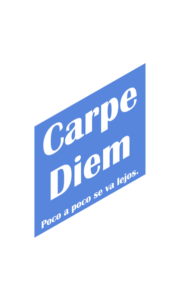落ち穂ひろいmini vestir
el mismo que viste y calza
まぎれもない本人
この言いまわし、忘れた頃に再会です。現在視聴中のスペインドラマ “Dos Vidas” で主人公 Julia の義父 Oscar が Tirso のホテルで発した一言です。
実は数年前にどこかで聞いたことのあるような気がして確認したところ、“Cuéntame cómo pasó” で、Franco 体制終末期とも言える1972年が舞台でした。
このドラマでは Herminia(Merche の母親)や Cervan (Herminia と同世代の男性)が口にしていたこと、その後、同ドラマ以外で耳にすることがなかったことから、Don Quijote に似合いそうな(もしかして、そうかも)古風な響きのある言葉かなと思っていました。
ところが、2021年のスペインが舞台の “Dos Vidas” での再会だったことから、ちょっとした驚きでした。
この機会に、両ドラマからの引用をまとめてご紹介させていただきます。
-Bienvenidos. Yo a usted lo conozco, ¿verdad? No es la primera vez que vienen aquí.
-Estuve en la boda de mi hija. Bueno, en la no boda.
-El padre de Julia.
–El mismo que viste y calza. Veo que mi hija ya es conocida aquí.
-En este hotel se la aprecia mucho. Eso, sí, en unas épocas más que otras, ¿a que sí, Tirso?
-¿Y ha venido a visitar a Julia?
-Sí. La echo muchísimo de menos. Mi socia y yo teníamos unas reuniones en Madrid, y lo he programado todo para venir a verla.
-Bienvenidos.
-Bienvenida a Robledillo.
“Dos vidas” – Capítulo 107
-Es el caudillo.
-¿Quién?
-El generalísimo. Es él.
-Qué va a ser él.
-Que sí, claro que sí.
-Que no era Franco.
-A mí no se me despista. El que viste y calza.
-Bueno.
-Madre, no digas tonterías.
“Cuéntame cómo pasó” – Capítulo 90 “Si la envidia fuera tiña” (02 dic 2004)
-Antes de la guerra, yo trabajé en un circo.
-¿En un circo? ¿En cuál?
-¿Qué más da, Antonio? Y fui funambulista.
-¿Cómo ibas a serlo?
-Sí. Además tenía un número de cante, de baile…
-¿Tú?
–Yo. El que viste y calza. Vamos, si queréis…
-Cuidado.
-El éxito era enorme.
“Cuéntame cómo pasó” – Capítulo 93 “Polvorones bajo palio” (23 dic 2004)
〔2021年9月27日 追記〕
このテーマに関連して英語 yours truly 「私(自身)」に触れようかどうか迷ったのです。これも杉田敏先生の「NHKラジオ 実践ビジネス英語」で学んだ表現だとすぐに思い出したのですが、出典がわかりませんでした。手紙の末尾に記す「敬具」に相当することは説明不要でしょうが、「自分自身」のことを指して使われるのは面白いですね。「実践ビジネス英語」では何度も出てきた表現ですので、杉田先生のお気に入りかも知れません。
さて、昨日、コロナワクチンの大規模接種会場での経験を投稿したばかりですが、明らかに英語圏の接種者には接種ブースまで同行した際には Time to roll up your sleeve and bite the bullet. と一言添えます。特に緊張気味の方にはこの一言で和んでいただきたいという思いがあるからです(8月のことですが、優先レーンでの接種者で、沖縄の米軍基地にお勤めだった退役軍人には苦笑い?されてしまいましたが)。
ということで、出典箇所の確認ができました。ワクチン接種とも絡む内容ですので、長文の引用をご容赦ください。
Umemura Seiji: Wow, so many people I know have come down with the flu lately. I hope I don’t get it. I hate being sick.
「NHKラジオ 実践ビジネス英語」(2014年1月号)
Steve Lyons: Yes, it’s that time of year, all right. You know it’s flu season when you see people trying to open doors without touching doorknobs. It’s a serious health problem: up to 20 percent of Americans get the flu each year. More than 200,000 people are hospitalized and there are 36,000 deaths on average.
Umemura: I had no idea the flu was a such a threat. Do you think I should get a shot? Or have I left it until too late?
Carmen Garcia: I got a flu shot in November. I usually have my vaccination in September or early October – before the onset of the flu season. But it’s not too late to get one now. There’s no time like the present. The virus lingers on into May. Besides, you’ll get a lollipop.
Umemura: Well, that’s definitely an offer I can’t refuse. I’ll make an appointment to get a flu shot right away, even though needles always scare me.
Lyons: Yep, it’s time to roll up your sleeve and bite the bullet. That can save you a lot of suffering and grief further down the road.
Garcia: I used to think it was a pain to get a flu shot and risk possible side effects like a runny nose, headaches and a sore throat. But then one year I was hit by a doozy of a flu bug that laid me low for close to three weeks. Never again, I said.
Umemura: So I guess these days most Americans do the smart thing and get a flu shot, right?
Garcia: Wrong, unfortunately. The majority of adults in the United States don’t get an annual vaccination against the dreaded influenza. And the ratio is even worse for kids – fewer than one child in five receives a yearly shot. But for yours truly, getting a flu shot is a no-brainer. An ounce of prevention is worth a pound of cure, after all.
